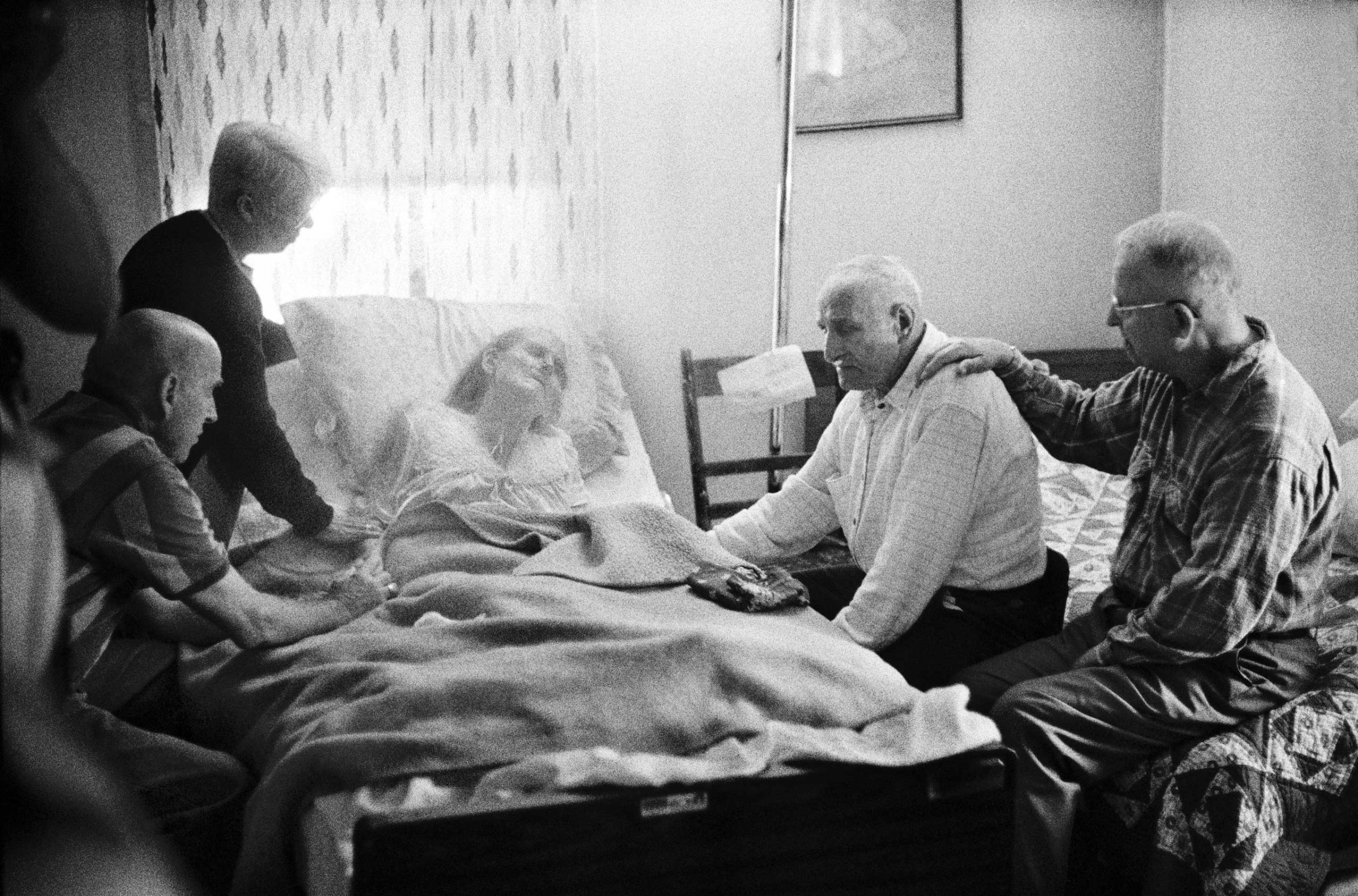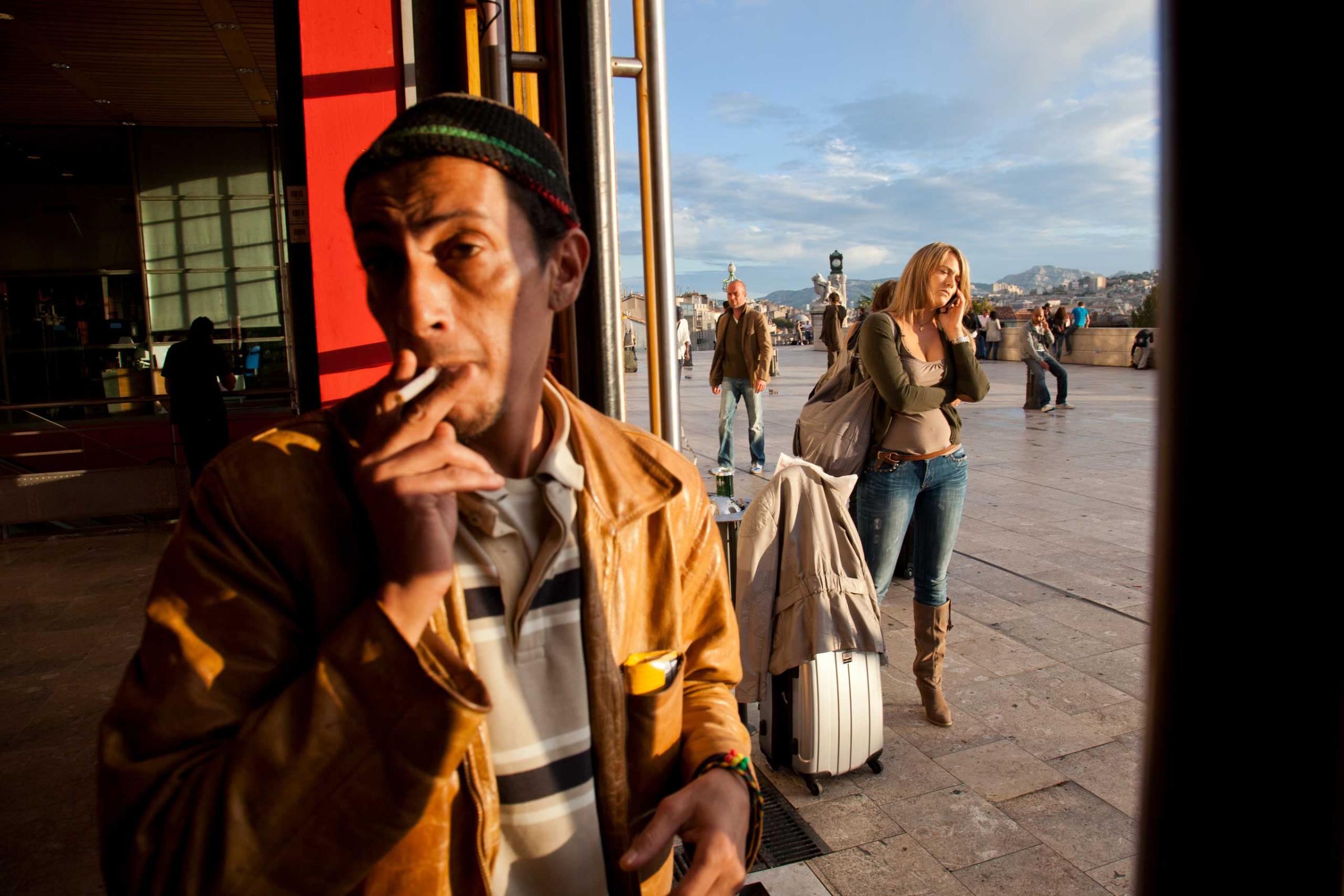
Ed Kashi, a documentary photographer and member of the VII Photo agency, writes about the challenges of balancing his professional and personal lives, highlighting the “residual impact” that a lonely profession spent documenting “pain, suffering, violence and death” can have on loved ones.
For those contemplating the life of a photojournalist, beware the personal challenges and questions that await you. I have spent a lifetime trying to become invisible. As a documentarian my goal is to disappear, to observe without disturbing the world I’m trying to capture. It is obviously impossible to actually achieve this, but that hasn’t stopped me from trying. Disappearing into the background is an effective strategy to bear witness to moments that would otherwise be inaccessible. Candid intimacy is the term I’ve used to describe my work, and my vanishing into nothingness is the imperative.
But what happens when you become so expert at this that you begin to disappear in your own life?
After more than 30 years of perfecting this routine in my work I am now confronting the residual impact on my personal life. It’s as though I am nothing without my work. Over the last three decades my energy has been channeled into forging my identity as a documentarian, in the process becoming very good at slipping into the mentality that has led my career to where it is today. So much so that I now feel solely defined by the roles of photojournalist, filmmaker and mentor. A work machine.
Yes, I have two beautiful and incredible children that are my lifeblood. And a mate who gives love and commitment unconditionally. But most of the time I’m alone perfecting my disappearing act. The result is a deep sense of loneliness and abject uncertainty. I have been exposed to pain, suffering, violence and death, the cumulative effects of which have posited me into voids of nothingness more often than I ever could have imagined, and more often than my wife deserves to have to live with.
I am also disturbed by how every reentry into my personal life with friends, family and colleagues, invariably begins with questions that I have come to dread: “How long are you home for this time?” or “Where did you just return from?”, or “Where are you going next?” While they are innocent enough questions, they reinforce my sense of alienation. Even those closest to me always expect me to be gone, absent, disappeared.
Losing myself in other people’s lives, whether in their dramas of joy, pain, or transition, has turned into not being able to find myself in my own life. I now have to relearn how to be with others and relax in joyful and calm moments. I now have social anxiety and it can be difficult, sometimes overwhelming, to engage with others outside of prescribed and controlled situations. I know veterans of war, survivors of trauma and sensitive souls that life has trampled on who experience similar and often far worse symptoms.

The cliché of wanting to be a “fly on the wall” is necessary for journalistic documentary work. When I was first starting out I didn’t understand how to do it or what it required. I worked on gut instinct and through trial and error. The stress and frustration was nearly constant, but I did my best. There were countless situations in the Middle East or Africa where I wanted to capture some element of daily life, only to find myself loitering in the lives of people in a small village. It was awkward and frustrating to feel I was constantly standing out and being so far from the fly on the wall I was hoping to be. I can remember trying to capture a family meal only to encounter the generous expectation that I would consume their carefully prepared food with them. I tried to explain that they should eat without me, but soon realized that I had transitioned from being awkward to being just plain rude.
It took me many such encounters to learn that it’s much better, from the human graciousness of a guest to the naked ambitions of a photojournalist, to go with the flow. My pictures started to come much easier and connections with others developed with more harmony and soul, and with the intimacy I had strived for in my work.
But through all this shape-shifting, however genuine and heartfelt, I lost myself along the way. I have become accustomed to experiencing the graces of those who have excruciatingly less than I do. When I’m in my own milieu I feel uncomfortable and anxious. It’s not that I feel guilty: I just don’t feel comfortable in my skin. Certain questions have become too unsettling to ignore. Has my camera become my protective skin? Am I no longer myself when I don’t have a recording device? How can this be? My life is rich, entitled, some could say even spoiled. Is this another “first world problem” and I should just shut up? I often joke, although sometimes I don’t actually find it funny, that René Descartes’ famous saying for me would translate into “I record, therefore I am.”
As a photojournalist, you can have the privilege of expansive knowledge of the world, cultures, the processes of technology and business, and the small yet magical moments of daily life. You can experience exquisite beauty, both of the natural world and within human nature. You will also witness pain and suffering, hatred and violence. It is an intoxicating mix and I urge you to jump in.
But as you shape yourself to better practice your art and your work, be mindful of what can be lost when you let that consume you. Or you might lose yourself.
Ed Kashi is a documentary photographer represented by VII Photo. This article was first published on the photographer’s website.
More Must-Reads from TIME
- Why Trump’s Message Worked on Latino Men
- What Trump’s Win Could Mean for Housing
- The 100 Must-Read Books of 2024
- Sleep Doctors Share the 1 Tip That’s Changed Their Lives
- Column: Let’s Bring Back Romance
- What It’s Like to Have Long COVID As a Kid
- FX’s Say Nothing Is the Must-Watch Political Thriller of 2024
- Merle Bombardieri Is Helping People Make the Baby Decision
Contact us at letters@time.com